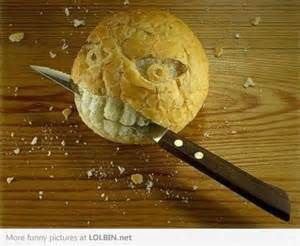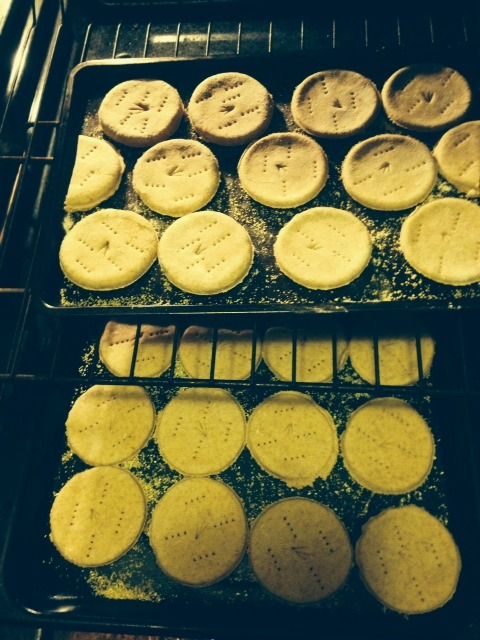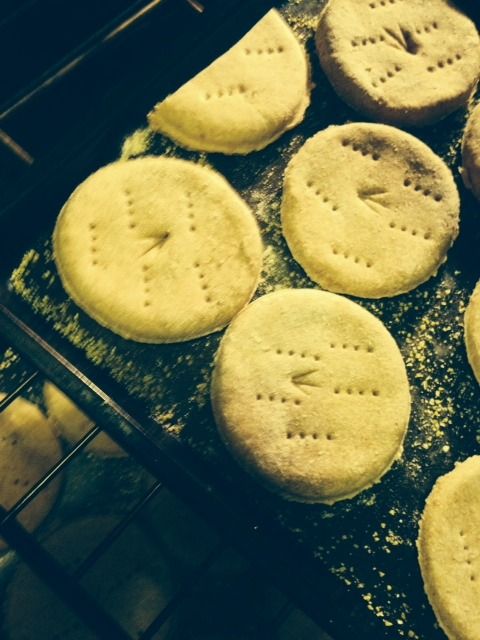I found this PDF that seems quite informative On our sea biscuit
http://colonialbaker.net/A Summary of Reproducing the 18th Century English Sea Biscuit.pdf
"The recipe given will make 1 ½ pounds of dough. This amount can be divided into three to five
pieces to make one ration of biscuit. The water lost by baking and drying the biscuits will reduce the bread’s
weight by 1/3 and give you the proper weight for each biscuit of the given size."
Besides the
lack of mention of salt in any documents on biscuits, we also have one poignant definition of a biscuit from
1701 that empathizes the lack of salt: “Sea-Bisket- of excellent use for the Sea, because baked without Salt,
and well dried”
8
8 Samuel Jeake, A compleat body of arithmetic, (London, 1701), 74
"One English biscuit from 1784 is in the collections of the National Maritime Museum, Greenwich,
London and can be seen on their website.
13
The dimensions of this biscuit are 95mm (3¾ inches) diameter
by 10mm (9/16") thick"
(I FAILED TO FIND THAT BISCUIT. but found)
http://collections.rmg.co.uk/collections/objects/563181.html
I want you all to know you are in large part to blame, that I get excited about finding a paper about making the plainest biscuit known to man :haha:










